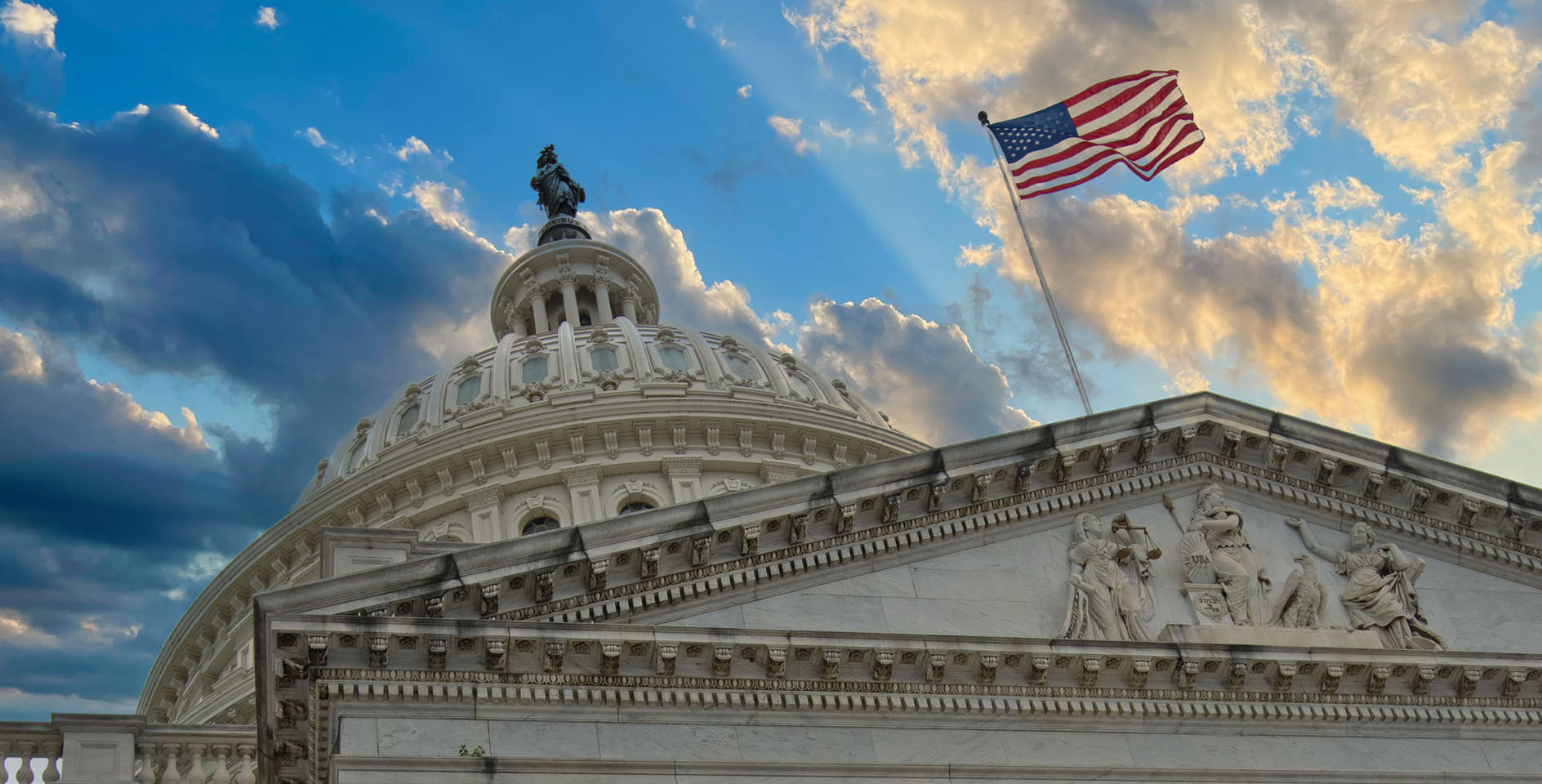When things seem dark, we must remember that God is in control. That may sound like one of the most obvious and simple truths of Christianity. But oftentimes, we can forget it or overlook it, especially when it comes to the topic of politics.
When we look around our world, it is easy to see why the Bible refers to Satan as the “god of this world” who “has blinded the minds of the unbelievers” (2 Cor. 4:4). There are so many things we can point to in our society right now and think to ourselves, “This is not how things are supposed to be.” If we’re honest, pushing back against the darkness can seem futile.
But here’s what we must etch into the deepest recesses of our heart: God is in absolute control over everything—over this world, governments, candidates, platforms, and parties. Nothing is happening that God is not using in his sovereignty to bring about his will (Gen. 50:20).
God is in control of the nations. They belong to him. Why? Because the earth is the Lord’s (Psa. 24:1). No matter where we go, what happens, or who is ruling, everything is underneath God’s ultimate sovereignty.
What it means to be political
Consider Israel when it was exiled into Babylon. Israel could have feared that it would be overtaken and stamped out of existence. But what does God say to do while they are in exile?
“Thus says the LORD of hosts, the God of Israel, to all the exiles whom I have sent into exile from Jerusalem to Babylon: Build houses and live in them; plant gardens and eat their produce. Take wives and have sons and daughters; take wives for your sons, and give your daughters in marriage, that they may bear sons and daughters; multiply there, and do not decrease. But seek the welfare of the city where I have sent you into exile, and pray to the LORD on its behalf, for in its welfare you will find your welfare” (Jer. 29:4–7).
God says for Israel to get rooted:to build houses, plant gardens, and build families. In other words, while in exile—in a state of things where they are not in control—God calls them back to his original plan and creation mandate. Israel’s seeking of Babylon’s welfare was going to look extremely ordinary. It was not going to be revolutionary. It was going to look like what God intended from the very beginning: be fruitful, multiply, steward the world around you.
The picture in Jeremiah comes closer to what it means to be “political” than volunteering for your local political organization. As we’ll explore in this volume, politics is how we arrange ourselves in society for the sake of justice and mutual benefit. In this way, politics is very ordinary. It consists of the small, daily actions of citizens stewarding the parts of creation order that are meant to be honored: life, family, and engagement in society. Keep in mind that this command was given by Jeremiah to Israel while the Israelites were in exile, meaning they were not the ones in charge, politically speaking.
But in exile, guess what? Babylon still belonged to God, as all other nations do. Babylon exists in a world created by God, so the world or political systems cannot rewrite God’s creation order. In a way, Israel was to tell Babylon the truth of living in a world created by God. Babylon was not free to do whatever it wanted or to claim authority that did not belong to it. Jesus says the same thing in a different way in Matthew 22. He says to render to God what belongs to God and to render to Caesar what belongs to Caesar. The implication of this is that Caesar can claim some authority, but it cannot claim ultimate authority. Caesar is under God’s sovereign rule.
The same is true of the nations today. But that brings us to an important consideration: What are Christians to do while in their own earthly nations? Should we expect to always be on the losing side? Or the winning side? Christians are not promised total victory or total defeat as history progresses. We’re called to be faithful and to speak the truth, in season and out of season (2 Tim. 4:2).
We’re to be engaged. We’re to be citizens, but citizens who understand that their primary citizenship is in heaven (Phil. 3:20). In the same way that Jeremiah called Israel to seek the welfare of the city, we, too, are to seek the welfare of the United States, Tanzania, Uzbekistan, or any nation where we reside with the type of love that God meant for us to give—not an ultimate love, but a love born of gratitude for the place where God has providentially placed us (Acts 17:26).
Metaphorically speaking, every country in the world is some type of Babylon. That is not meant to be a pejorative about our country; it is to recognize that while politics is not everything, it is not insignificant, either. We should be paying more attention to politics than we often are. Politics has real-life implications for the world we live in and the conditions of society that our neighbors encounter. If we are to love our neighbors, paying attention to and being involved in politics is just one way to do that. In doing so, we want to avoid the extremes of either political obsession or political apathy.
Politics is a calling to be engaged within a world that belongs to God, not ultimately to princes, presidents, or prime ministers.
What might Christian political engagement look like, especially in a presidential election year? Download “The Nations Belong to God: A Christian Guide to Political Engagement” to find help and hope as you seek to bring the gospel to your community.










